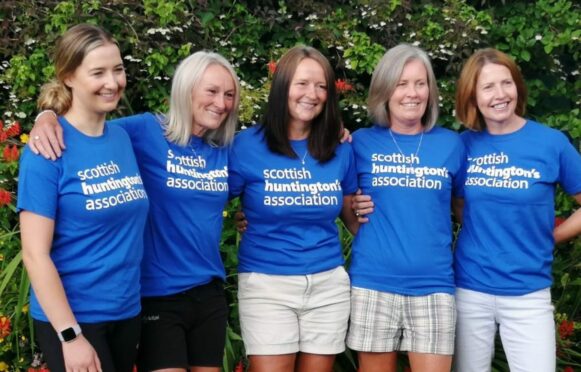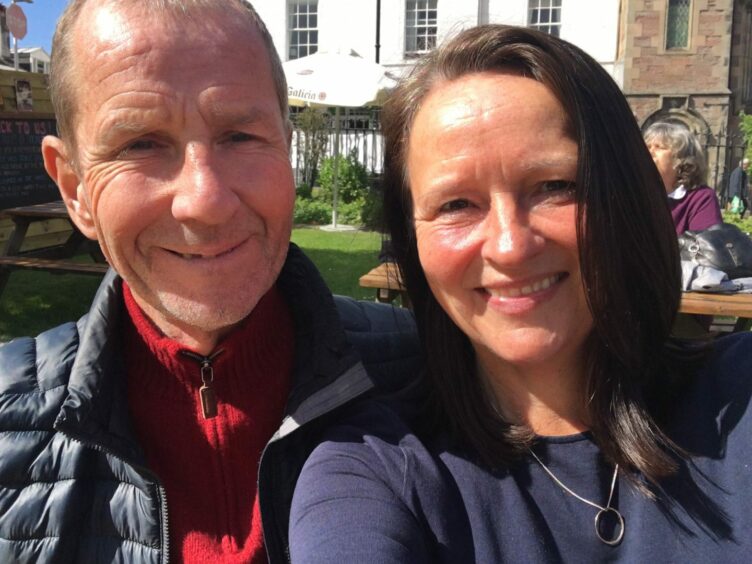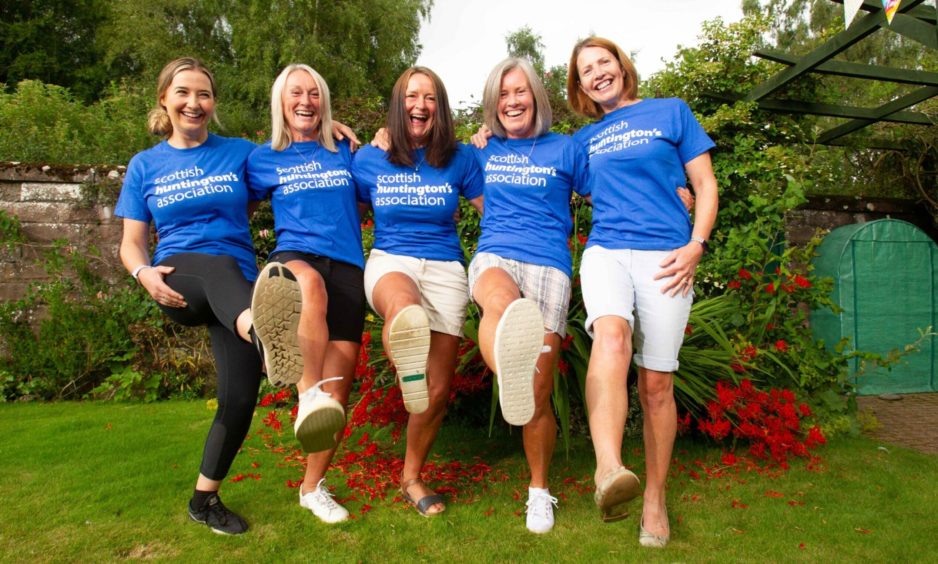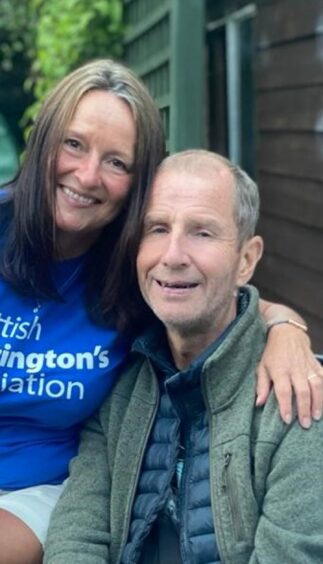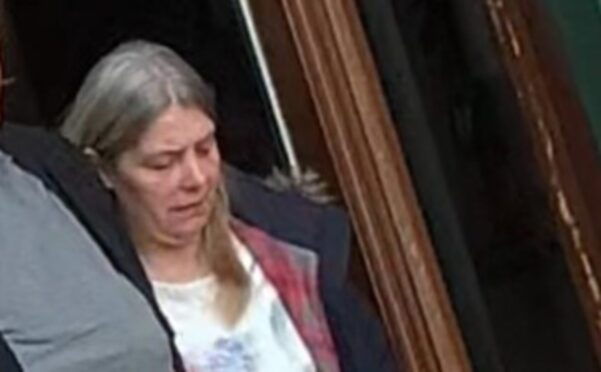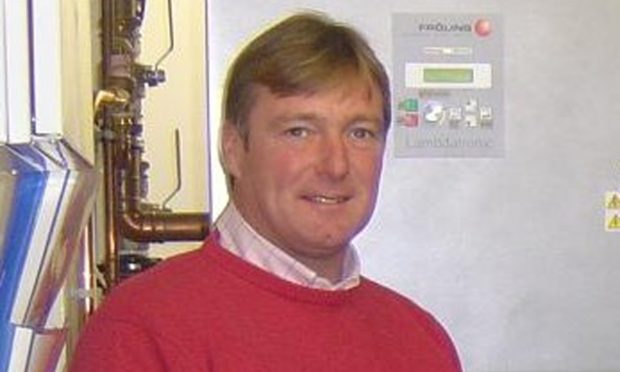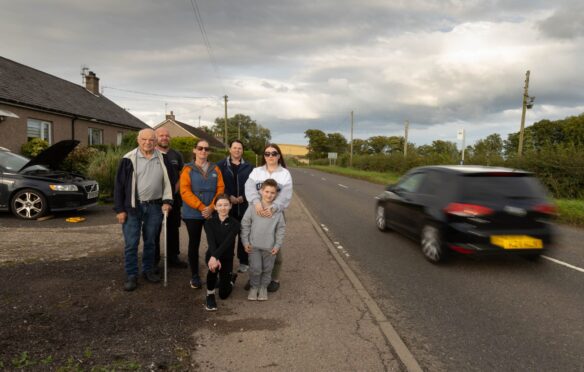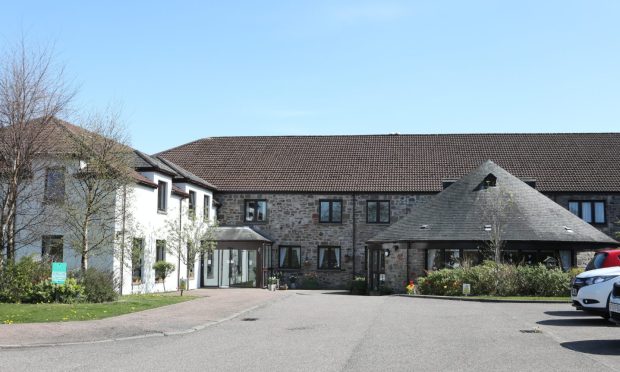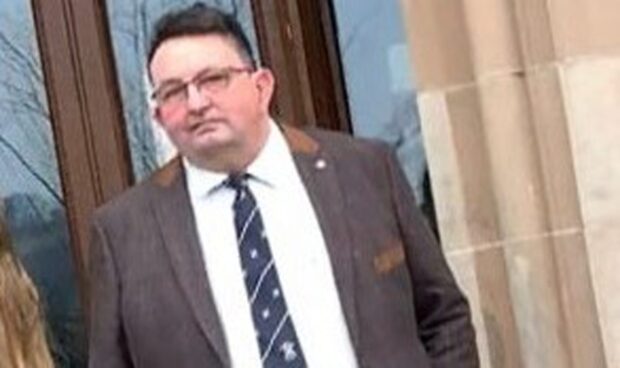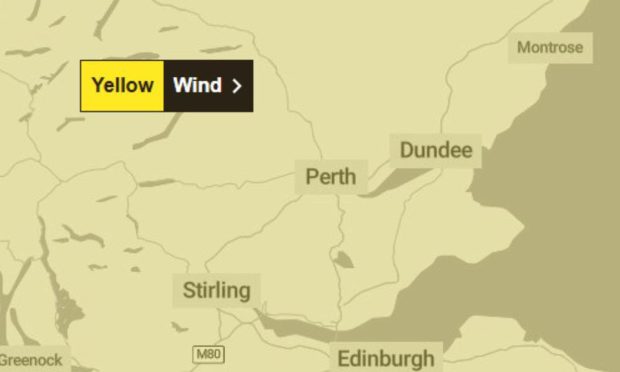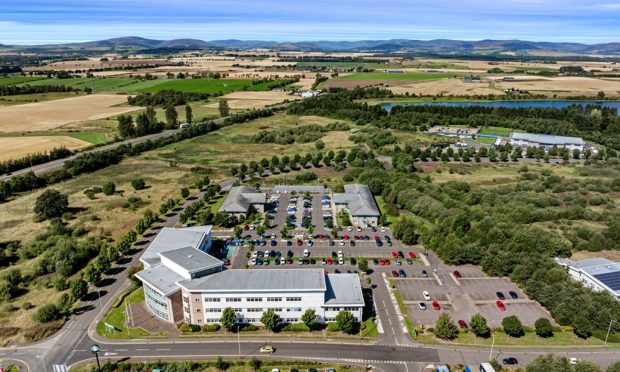They conquered the highest peaks of England, Scotland and Wales in one weekend.
And now the unstoppable Kirrie Girls are limbering up to take on a five-hour dance challenge in support of families with Huntington’s disease.
Jennifer Paton, Gill Ferguson, Dianne Scott, and mum and daughter Susan and Claire Dyce have raised more than £20,000 for Scottish Huntington’s Association since last summer.
Their efforts have generated valuable awareness about the rare disease in the Angus community and beyond.
Husband’s diagnosis of devastating condition
They are inspired by Jennifer’s husband Mike, who was in his early 50s when the first symptoms of Huntington’s began to emerge.
Sadly, the diagnosis confirmed what Mike already suspected – he recognised the early signs all too well after tragically losing both his mother and sister to the incurable disease.
It meant giving up a successful offshore career and adjusting to the serious health changes that lay ahead.
Since then, Mike’s mobility and balance have deteriorated and his speech is becoming more affected by the neurological condition.
But his fortitude is the driver for the friends’ determination to support the charity.
It is the only one dedicated exclusively to supporting Scottish families impacted by Huntington’s disease.
Openness around Huntington’s impact
Jennifer said: “Huntington’s disease was never spoken about when Mike’s mum was ill, not even among family members.
“But Mike and I have always been very open about his diagnosis and symptoms.
“Thanks to our Kirrie Girls friends, there is definitely much more awareness in Kirriemuir now.
“We held a fundraising cheese and wine evening in our home recently and about 50 people bought tickets.
“It was a really sociable way to bring folk together and have a blether.
“We raised more than £900 for Scottish Huntington’s Association that night.”
“What made it even more special is knowing we’re shining a light on a devastating condition that is not well known or understood by most people,” Jennifer added.
“I think nearly everyone here knows about Huntington’s disease now.
“And people often come up to us for a chat or to ask questions, which is fantastic.
“When Mike’s sitting outside on our porch, walkers on the path in front of the house stop to give him a wave.
“At the weekend he was getting lots of big hugs in the pub.
“It can be emotional because Mike’s a humble person.
“But we’re all pleased that people have a better understanding about his illness.”
So the pals are limbering up for the charity’s Dance 100 challenge in George Square, Glasgow on Sunday June 12.
They have signed up during Huntington’s Disease awareness month, which brings the global HD community together during May.
Spurred on by BBC’s Casualty cast
“We’re not as fit now as last year when we were training to do the Three Peak Challenge so I don’t know if we’ll manage the full 100 dances – but we’re going to do our best,” said Jennifer.
And the cast of BBC drama Casualty is backing everyone taking part in the Glasgow event.
Actor George Rainsford, who plays Ethan Hardy in the series, is the patron of Huntington’s Disease Association England and Wales.
SHA chief executive Alistair Haw said: “The Kirrie Girls and Mike are wonderful ambassadors for the Huntington’s community.
“In addition to raising funds to ensure the charity is able to provide lifeline services for families, they are creating change in their own community by raising much-needed awareness.
“It’s wonderful to hear that the people of Kirriemuir are so interested and supportive.
“Unfortunately, for too many of our families this is not the case; they are isolated because Huntington’s disease is all too often misunderstood by others.
“We’re working hard to change that, and what’s happening in Kirriemuir right now shows just what can be achieved when we work together.”
Complex condition
Around 1 in 5,000 people in Scotland have Huntington’s disease.
And a further 4,000 to 6,000 are at risk of having inherited it from their parents.
As the disease progresses, symptoms become increasingly severe, affecting movement control and the ability to walk, talk, eat, drink and swallow.
Mental illness, such as depression, mood swings and personality changes can develop, leading on to dementia.
It typically takes between 10 and 25 years from a person developing Huntington’s symptoms until the end of life.
Although worldwide research is taking place, there is no cure.
However, many of its symptoms can be managed with a combination of medication, alternative therapies and support from organisations like Scottish Huntington’s Association.
